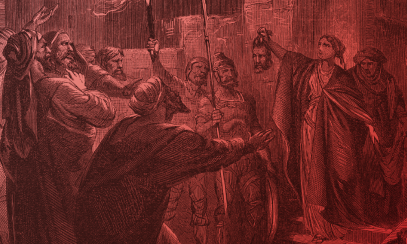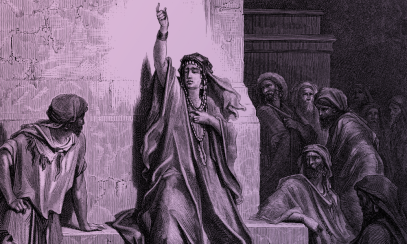
What Will We Be Saying Differently at Mass?
The Translation of the Roman Missal – Greetings and Dialogues
The Translation of the Roman Missal – Greetings and Dialogues
On the First Sunday of Advent, Nov. 27, 2011, all Catholic churches in the United States will begin using a revised translation of the book of prayers for Mass (formerly referred to as the Sacramentary). This new Roman Missal will be the third edition since Vatican II. It was promulgated by Pope John Paul II in 2000. A year later, a new set of guidelines on how texts were to be translated was issued – Liturgiam Authenticam.
With a new book and a new set of translation rules, conferences of bishops around the world have been busy for more than a decade, translating the editio typica from the Latin into the language(s) of their people.
The Order of Mass is not changing, but you will notice changes to some of our now-familiar prayers and responses. Over the next several months we will examine those changes and appreciate why they were made. Not only will the new translation be closer to the original Latin in style and structure, but it will deepen our faith by using words that draw on the Church’s rich theological, liturgical, scriptural and patristic traditions.
The introductory rites: the Greeting
“The rites that precede the Liturgy of the Word, namely, the Entrance, the Greeting, the Penitential Act, the Kyrie, the Gloria…and the Collect, have the character of a beginning, an introduction, and a preparation. Their purpose is to ensure that the faithful who come together as one, establish communion and dispose themselves properly to listen to the Word of God and to celebrate the Eucharist worthily.” (GIRM 46)
The introductory rites begin with a few simple words of dialogue between the priest and the people. By their nature, dialogues foster and bring about communion between the priest and all the members of the assembly. They are an outward sign that this is a communal celebration and that we, priest and people, are about to enter into an important liturgical act. It should be the normative practice to sing these dialogues. (Sing to the Lord: Music in Divine Worship, 115)
We begin our communal prayer the same way we begin all prayer, “In the name of the Father and of the Son and of the Holy Spirit.” The ancient words and gesture of the Sign of the Cross are not changing.
What follows will change a bit. The priest will say “The Lord be with you.” This line is often used as a greeting or as words of encouragement in Scripture. (cf. Judges 6:12; Ruth 2:4; Luke 1:28) A bishop says, “Peace be with you.” (John 20:19, 26; Lk 24:11)
The people will respond, “And with your spirit.” This response is a more literal translation of et cum spiritu tuo. It can be found in several places in Scripture, especially in the writings of St. Paul – “The grace of our Lord Jesus Christ be with your spirit, brothers. Amen.” (Gal 6:18; see also 2 Tim 4:22, Philippians 4:23, and Philemon 25)
The new language not only better harmonizes with the Scriptures, but more directly reflects the theology that, through baptism, the Spirit of God dwells in all of us and unites us as one body in Christ. In addition, this will be more in harmony with what other language groups – such as the Spanish, French, German and Italians – have been using for more than 40 years.
This same exchange is repeated elsewhere in Mass – before the Gospel, before the eucharistic prayer and in the concluding rite.
There are two other options for this greeting during the introductory rites: “The grace of our Lord Jesus Christ, and the love of God, and the communion of the Holy Spirit be with you all” which can be found in the conclusion of St. Paul’s Second Letter to the Corinthians (13.13) or “Grace to you and peace from God our Father and the Lord Jesus Christ” (Romans 1:7, etc.). To both, we will respond, “And with your spirit.”
With these few words of reverence and mutual respect, we acknowledge the Trinity and embark upon our celebration of the Paschal Mystery – that Christ lived, died and rose for our salvation. It is a journey we began at baptism and a mystery we enter into most fully at each celebration of the Eucharist.
OLD words
Priest: The grace of our Lord Jesus Christ and the love of God and the fellowship of the Holy Spirit be with you all.
OR
The grace and peace of God our Father and the Lord Jesus Christ be with you.
OR
The Lord be with you.
People: And also with you.
NEW words
Priest: The grace of our Lord Jesus Christ, and the love of God, and the communion of the Holy Spirit be with you all.
OR
Grace to you and peace from God our Father and the Lord Jesus Christ.
OR
The Lord be with you.
People: And with your spirit.



